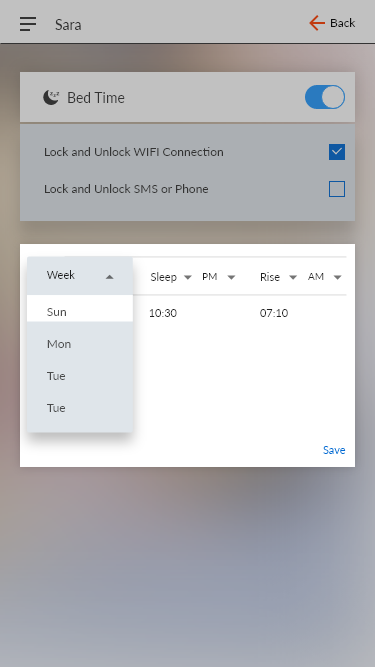How to Restrict Your Child’s Internet Access?
In an ever-changing digital world, staying on top of what our children consume on the internet can be challenging.
Parents think they have restrictions under control on their children’s devices. Very soon, we discover the installation of a new app that or game, or a video has slipped through your parental controls.Here are just a couple of obstacles parents face in restricting internet content for their children:
Digital Devices are a Commodity:


Even if a parent wanted to, it’s nearly impossible to eliminate digital devices from their child’s life. You may wonder why?
The first reason is many schools have increasingly turned toward digital technology. We can also find technology in public spaces such as medical offices, grocery stores, fast food restaurants, etc. Even if your child does not have a digital device, they can be exposed to them daily.
The second reason is societal pressure, especially for young adults. To have the hottest cell phones is not just a trend but a “must.” Those who don’t have up-to-date devices run the risk of being less connected than their peers with cellphones.
Tech-Savvy Children:
According to a 2015 study, 71% of children and young adults between the ages of 3-18 years use or have used the internet. Generation X and even younger generations are growing in a wholly digital world. As a result, we have a generation savvier than their parents on how to navigate the internet. There is no shortage of viral stories about toddlers accidently placing larger purchases on Amazon or Ebay. In more standard practices, older children can merely Google how to override parental restrictions placed on their devices. Of course, internet access isn’t necessarily a bad thing or the cause of the problem. The world wide web gives children access to educational materials and a better understanding of digital technology. The problem begins when children start using the internet for unhealthy, dangerous, or diminishing habits.
The Internet is Continuously Evolving:

The numbers are astronomical. Over 1,400 apps are released on the Apple App Store each day. On Youtube alone, 4 million hours of content are uploaded daily. Social platforms and devices roll out updates weekly. In other words: It can be very challenging to stay on top of new content and constant updates.
For example, Youtube offers a restricted mode for parents and has 10,000 moderators. Great news, right? Well, remember daily, there is over 4 million hours of content being uploaded. Even 10,000 moderators can take hours in finding inappropriate content.
The result can lead to controversial videos slipping through the cracks and end up being seen by your child.We understand the challenges parents face with parental controls. That’s why your service provider should aim to protect young minds from inappropriate or dangerous content on the web. Allowing you as a parent to take control of your family screen time is crucial.
Safer cell’s military-grade encryption system for Samsung Knox devices ensures that children cannot hack or bypass the restrictions you set on their phone.
A monthly plan allows you to:
1. Review, approve, disable and remove apps

2. Set a “bedtime” feature so your children can only make calls or send texts at night
3. Blacklist any specific website
4. See where your child’s device location
5. Remotely access your child’s device
In addition: Our filtering system automatically blocks access to the dark web, proxy servers, VNPs, and pornography sites.We are a one-stop-shop for parental controls, making it easy for parents to manage their children’s phones.
Safer Cell Service is the first security company to offer military-grade encryption, and military and government organizations have used the software since 2013. As a result it’s almost impossible for your children to override the restrictions you put in place, and we stand by that claim with a guarantee.
At this time, Safer Cell Service works with Samsung Knox devices, as they’re the only device on the market with the Knox security chip that enables programmers to secure a phone. (If and when Apple utilizes this security chip, we hope to work with their devices in the future.)
We are currently looking for beta testers to test our platform. Sign up today to be one of the first testers of this exciting new product.
Safer Cell Service will officially launch on October 2019. Sign up for our newsletter to stay in the know.






